On the same day China shows off military might at the 70th anniversary parade, the United States stock market fell by nearly 350 points. On Tuesday (Oct 1), the Dow Jones Industrial Average (DJIA) finished lower – losing 343.7 points. But it had little to do with the Chinese revealing its nuclear ballistic missiles that can hit the U.S. in 30-minutes.
Instead, investors were dumping stocks after a key economic report showed that American factory activity fell for a second month in a row in September, thanks largely to Donald Trump’s trade war with Beijing. The ISM (Institute for Supply Management) manufacturing index dropped to 47.8 in September, compared with the Refinitiv consensus forecast of 50.1.
The ISM index for the U.S. had already declined to 49.1% in August, the lowest reading in more than 3 years. A reading above 50 indicates expansion, while a reading below that level signals contraction. The latest American manufacturing number was the lowest reading since June 2009 – the last month of the Great Recession.
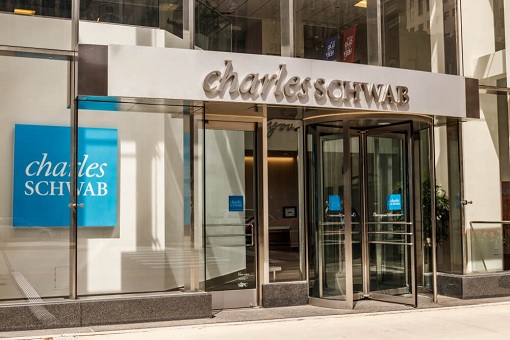
But there was one category of business in the financial sector that dropped like a rock on Tuesday regardless of the manufacturing numbers – stock brokerage firms. In one of the most dramatic moves in stock broking, Charles Schwab Corp. said it is ending commissions for online trading in U.S. stocks, exchange-traded funds (ETF) and options.
Effectively, starting on October 7, Schwab, which holds about US$3.72 trillion in client assets, will be cutting its trading commission cost for U.S. stocks, ETFs and options listed on U.S. or Canadian exchanges from the previous US$4.95 to “ZERO”. Charles Schwab said clients trading options will continue to pay 65 cents a contract.
The sudden move by Schwab – the largest publicly traded e-broker (12 million brokerage customers) – immediately created havoc in the online-brokerage business. Shares of Schwab fell 9.7% on fears the change will hit margins. Rival E-Trade shares plunged 16.4% for its worst day since 2009, while brokerage firm TD Ameritrade plummeted 25.8% – its worst day in 20 years.
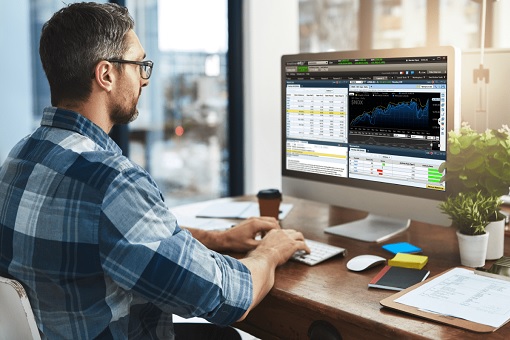
Charles Schwab said eliminating online trading commissions equates to about US$90 million to US$100 million in quarterly revenue, or about 3% to 4% of revenue. After the closing bell, TD Ameritrade announced it, too, would eliminate online trading commissions to zero starting Thursday – a move expected to wipe out US$220 million to US$240 million in quarterly revenue.
Prior to the stunning move by Schwab, TD Ameritrade and E-Trade charge US$6.95 for online trades. And like Schwab, options will still have a 65 cent per contract fee for TD Ameritrade. Another player, Interactive Brokers – which set the stage for Schwab’s price move last week when it announced plans to launch a zero-commission stock-trading service – fell 9.4%.
Interactive Brokers announced last week that it will unleash a new “lite” version of its trading platform with free, unlimited trading for U.S. equities. The service, to be launched in October, will have a relatively low rates on margin borrowing and a yield of 1.5% below the Fed Funds rate on cash reserves. But the “IBKR Lite” clients cannot enjoy powerful TWS (Traders Workstation), which contains a wealth of analytical tools.
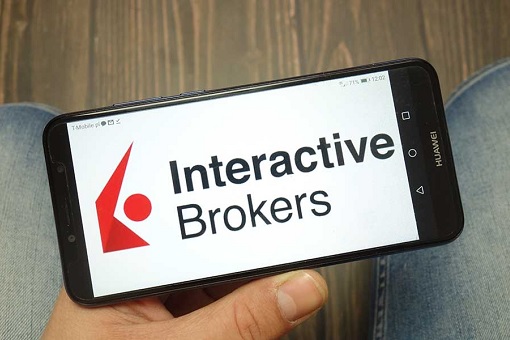
When online brokerages such as E-Trade became hot during the 1990s dot-com boom as day trading took off in a huge wave, nobody thought online trading could be free. But when E-Trade lost business to player like Robinhood, a Silicon Valley startup founded in 2012, it raised millions eyebrows. Robinhood has amassed 6-million users since it offered stock trading for free in 2013.
The company offers the Robinhood smartphone mobile app, which allows individuals to invest in public companies and exchange-traded funds listed on U.S. stock exchanges without paying a commission. To make money, the company depends on interest earned on customers’ cash balances and margin lending.
Robinhood’s success has sparked copycats offering free stock trades, including Webull, M1 Finance, TradeZero and Dough. But the changes in online stockbroking business model have also forced other major brokerage firms to play the same game. Last summer, Vanguard Group announced investors using its online brokerage platform could trade all ETFs on a commission-free basis.
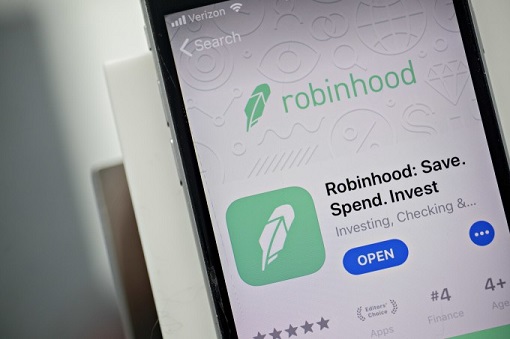
J.P. Morgan Chase & Co. last year unveiled its “You Invest” product, which offers customers at least 100 free stock or ETF trades a year. Subsequently, in August, J.P. Morgan Chase unveiled its own free trading app. Similarly, Bank of America Corp.’s Merrill Edge also offers some commission-free online stock and ETF trades.
However, not every brokerage firm will face the same impact with the “race to zero” game. For example, TD Ameritrade generates 28% of revenues from commissions, but Schwab generates only 8% from revenue. E-Trade, which still charges commission fees (until further notice), gets about 17% of revenue from commission. It’s a matter of time that E-Trade follows the trend or lose more business.
Schwab obviously can afford to play the game. The company, with a market value of about US$54.7 billion, is hoping the lost fee revenue will be made up for in new assets for the firm. The last time the financial services company lowered its commission fee was in February 2017 – from US$6.95 to US$4.95 for standard online equity and ETF trade commissions.
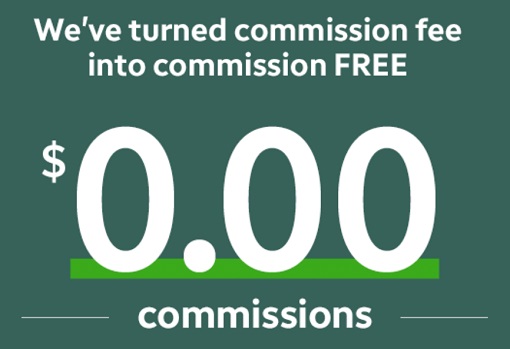
Moving forward, one can expect consolidation – merger and acquisition – in the sector. e- Wall Street trading desks have been hurting because of falling stock-trading volumes, as concerns over slowing economic growth have made investors more cautious. Interest-rate cuts by the Federal Reserve, and now the zero commissions, will certainly make things worse.
Schwab Chief Financial Officer Peter Crawford said – “We don’t want to fall into the trap that a myriad of other firms in a variety of industries have fallen into and wait too long to respond to new entrants. It has seemed inevitable that commissions would head towards zero, so why wait?” The zero commissions may sound unbelievable, but you can bet that brokerage firms will somehow still make profit from your account.
Other Articles That May Interest You …
- Stock Market Would Be 10,000 Points Higher Without Trade Wars – Here’s Probably How Trump Gets The Number
- The Endgame Has Just Begun – Trump Calls Xi Enemy, Raises Tariff Rates & Orders U.S. Companies To Quit China
- China Strikes Back!! – Trade War Becomes Currency War After Suspends U.S. Agricultural Goods & Devalues Currency
- Economists Thought China’s Economy Depends On The World – But McKinsey Research Shows Otherwise
- What Trump Doesn’t Want His Supporters To Know – China Lowered Tariffs To Everyone Except The U.S.
- The U.S. Is Already In Recession – And There’s Something Wrong With The Stock Market Rally
- China’s New Message To The U.S. – “Negotiate – Sure!”, “Fight – Anytime!”, “Bully Us – Dream On!”
- Trump Is Bluffing – He Will Not Let The Stock Market Collapse, And He Lied About Forcing China To Pay $100 Billion
- 2019 Recession May Have Started – December Stock Market Will Be The Worst Since 1931 Great Depression
- 30 Investing Tips & Tricks You Won’t Learn At School

|
|
October 2nd, 2019 by financetwitter
|


|

|

|

|

|

|




























Comments
Add your comment now.
Leave a Reply